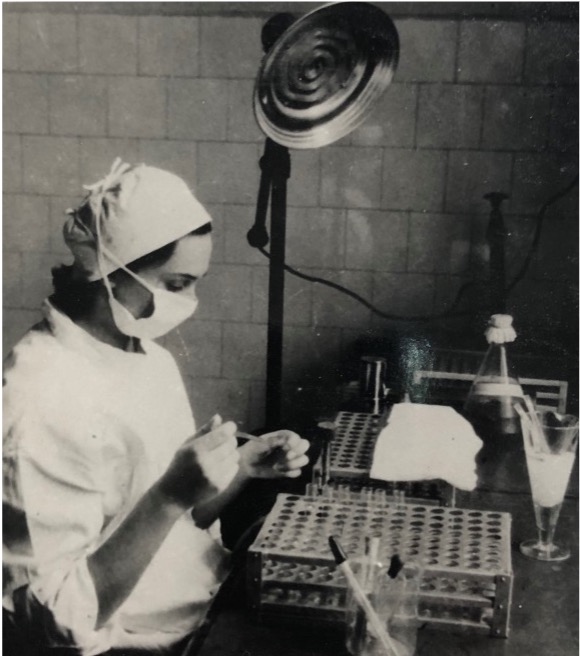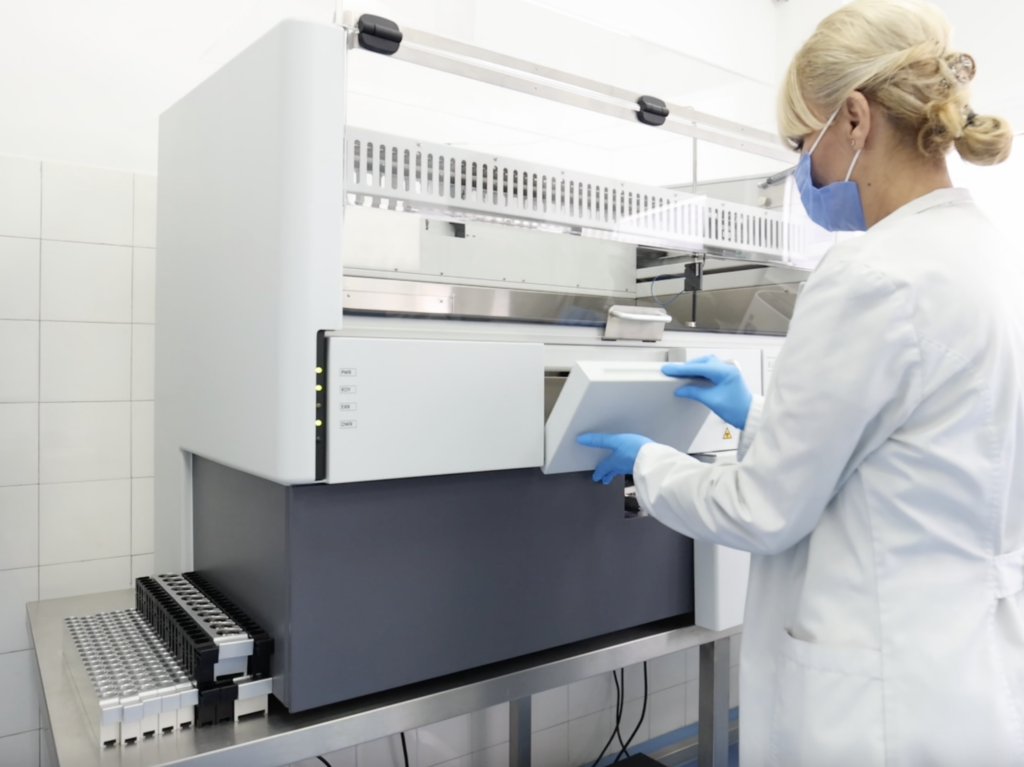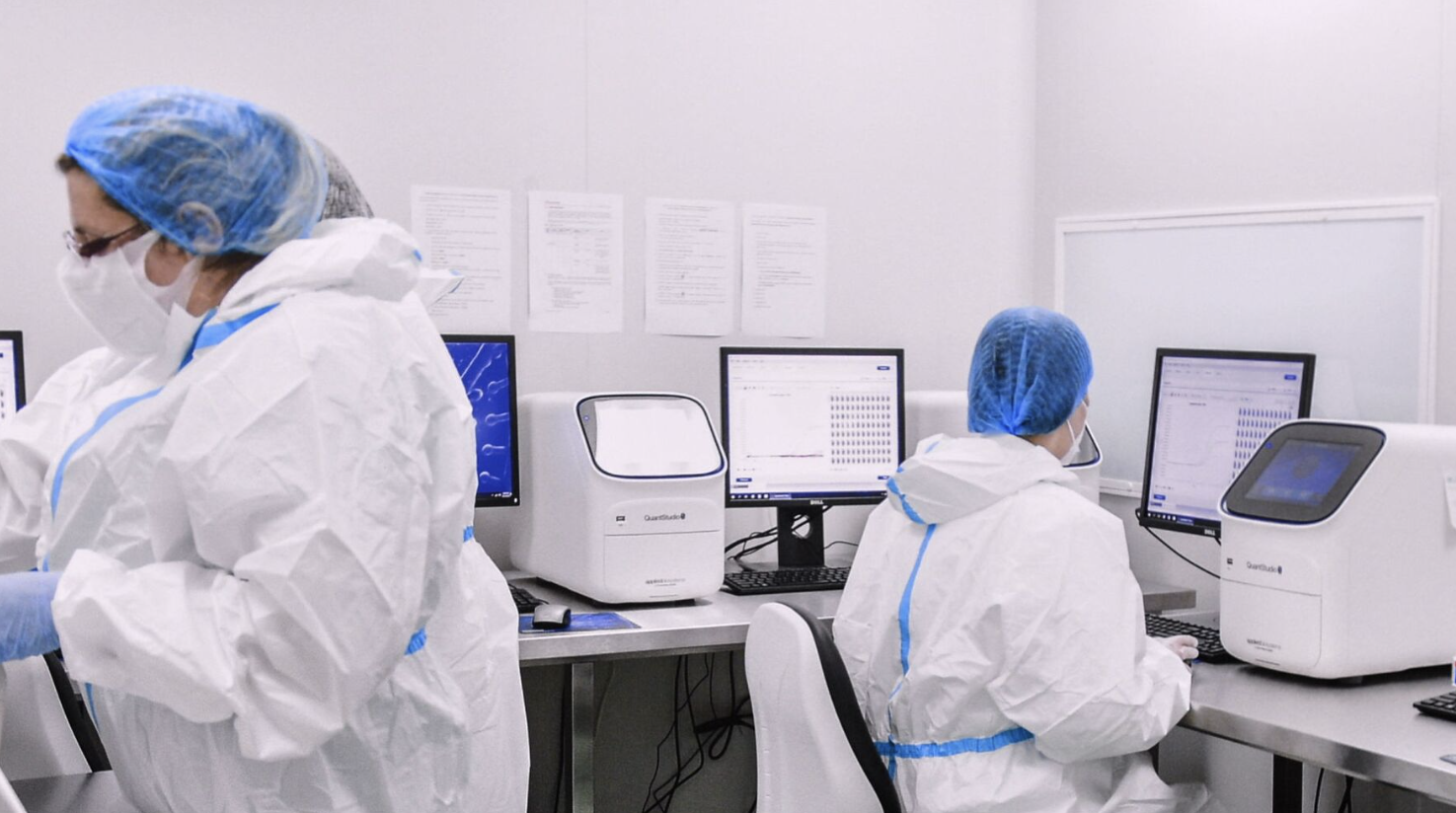
Virological diagnostics was established at the Institute of Virology, Vaccines, and Sera “Torlak” in the early 1950s, and by 1960s, the laboratories had gained the status of national reference laboratories in the former Yugoslavia.
Since then, diagnostic laboratories have been intensively developed in terms of organization and scope of work. They have played an indispensable role in diagnosing various infectious diseases and epidemics in our region.
- The appearance of the new Marburg virus in 1967.
- The smallpox epidemic in 1972.
- Isolation and identification of a new serotype of Hantavirus – Belgrade/Dobrava in 1989.
- The Swine flu pandemic in 2009.
- The SARS-CoV-2 pandemic in 2019.
- The epidemic of monkeypox in 2022.
- As well as epidemics of West Nile fever and measles.

Today’s modern virological diagnostics at “Torlak” Institute are conducted in the Department of Serodiagnostics and Molecular Diagnostics, which constitutes a contemporary virological center with four designated national laboratories:
The National Laboratories of the “Torlak” Institute are part of the Pan European Network for Disease Control, and also World Health Organization (WHO) European Laboratory Network and hold the status of fully accredited WHO member laboratories, closely collaborating with the overarching regional WHO reference laboratories. Accreditation is renewed annually based on clearly defined requirements and criteria. The laboratory’s activities are continuously enhanced and aligned with European Union standards.
The National Laboratories of “Torlak” Institute actively collaborate with health organizations and agencies, fostering inter-laboratory cooperation with microbiological laboratories in the Republic of Serbia, as well as with related laboratories across Europe and worldwide:

Virological surveillance of viral infections is conducted in collaboration with the epidemiological service at the network level of institutes and public health institutes in the Republic of Serbia, as well as in cooperation with clinical doctors from various stationary health institutions, in line with the current epidemiological situation.
The result of this teamwork is continuous surveillance of poliomyelitis, influenza, gastrointestinal and respiratory viral infections, measles, rubella, chickenpox, mumps, and hemorrhagic fever diseases in the territory of the Republic of Serbia, aiming for prompt implementation of epidemic control measures to combat infectious diseases, as well as eradication (poliomyelitis) and elimination of certain diseases (measles, rubella).
Standardized and validated analytical methods, developed and verified by relevant institutions, are implemented in the laboratories. Rigorous quality control and testing are conducted to ensure a high standard of accuracy and precision of the obtained results, which are confirmed by excellent results of external quality assurance (EQA) assessments. The analyses are performed by skilled and trained staff with decades of experience in diagnosing respiratory viruses, in laboratory spaces meeting all biosafety requirements.

The laboratories are professionally and technically equipped to confirm the diagnosis in clinically suspected cases using virus isolation in tissue culture cells, demonstrating viral genome presence, and/or conducting necessary seroepidemiological investigations (determining immune status and response after immunization).
In order to confirm and identify types and strains of causative agents of infectious diseases – reference laboratories perform their activities through:
- Reference diagnostics for providing precision confirmatory diagnostic services within the field of referenceability at the request of another laboratory; performing validated reference diagnostic methods when analyzing causative agents of infectious diseases and specific microbiological markers of infectious disease causative agents, as well as testing atypical samples.
- Resources of reference material for the development and maintenance of a reference material collection (reference strains and cultures, clinical isolates, sera, genetic material, and others) to maintain quality control systems, evaluation and validation methods, which should be available to relevant laboratories and organizations upon request, in accordance with international standards and procedures.
- Scientific advice for providing advice and consultation and technical support to other laboratories, healthcare workers, and health collaborators regarding the diagnosis of infectious diseases, methods and procedures within the field of referenceability, and interpretation of laboratory findings; preparation of national guidelines; harmonization of methodology with globally accepted standards; providing technical support in the development of public health policies for vaccination issues, epidemic management, and more.
- Collaboration and research in scientific research and cooperation with laboratories in their area of expertise and regional and international laboratory networks (ECDC, WHO, CDC).
- Participation in national and international infectious disease surveillance, provision of ALERT systems, preparation for epidemic cases, diagnostic and technical support in case of epidemic outbreaks.
Regulation on the manner of recording data on laboratory tests, deadlines, and the method of informing about obtained results, “Official Gazette of the Republic of Serbia”, no. 73/2017.

